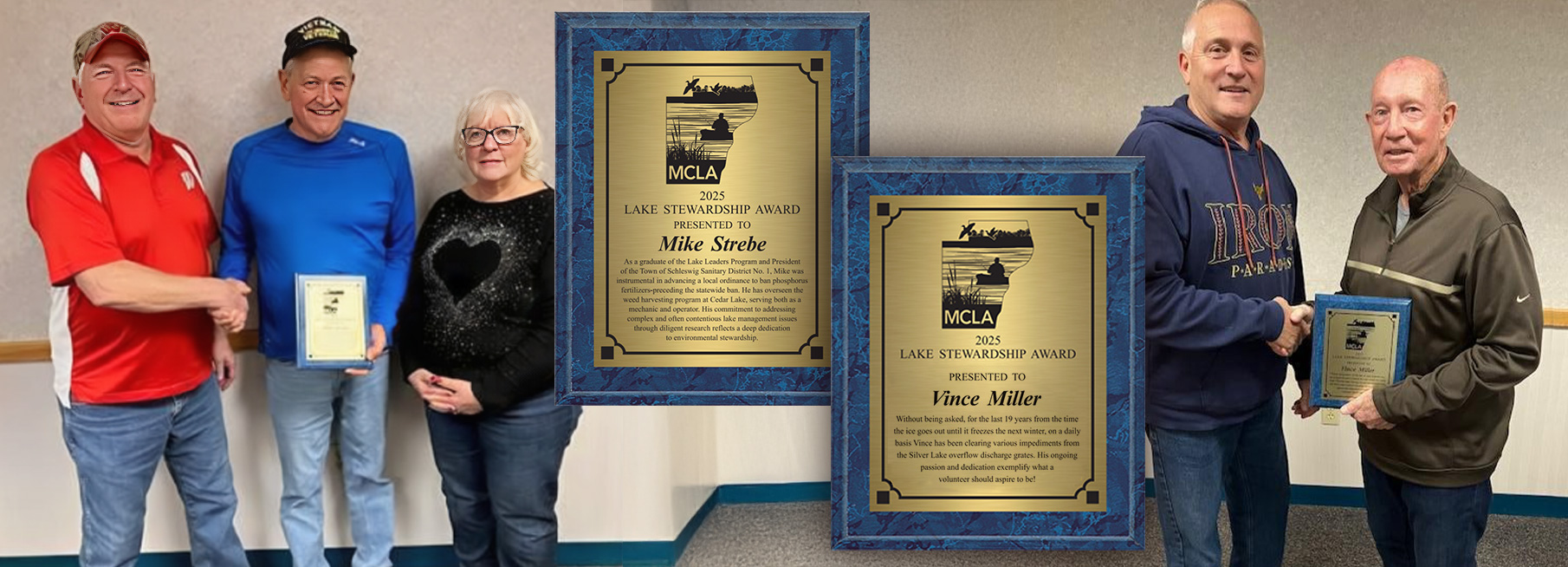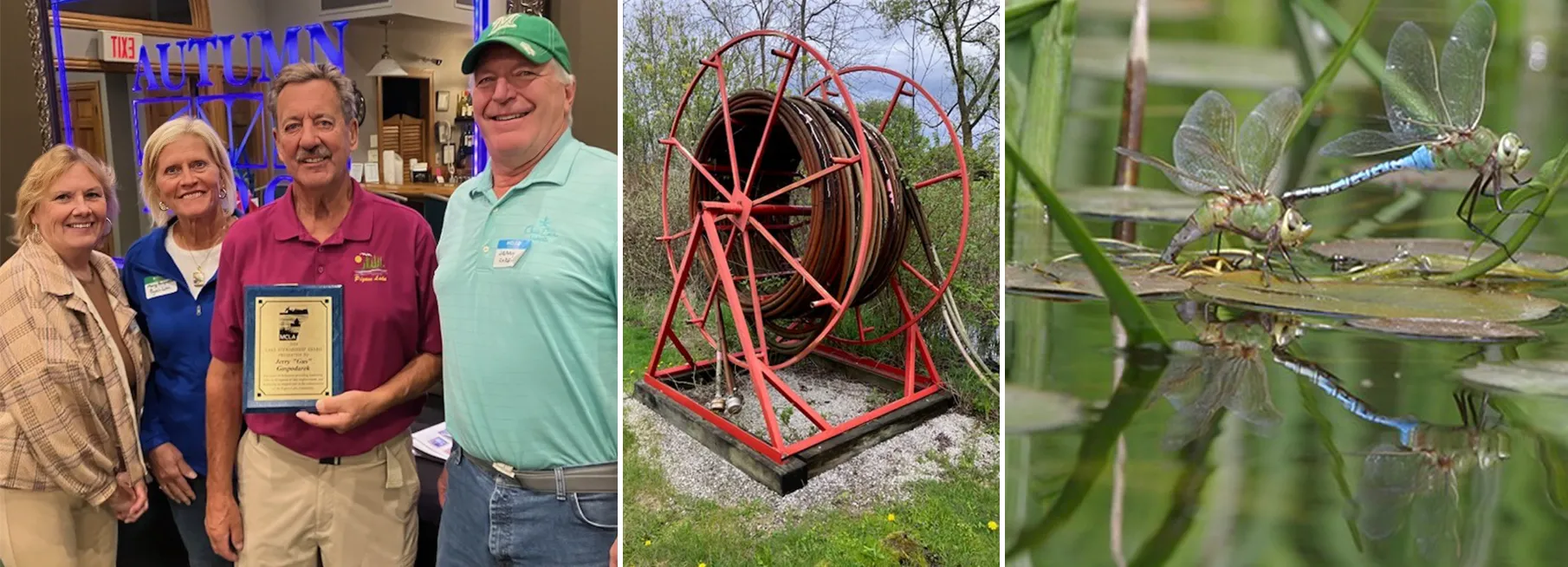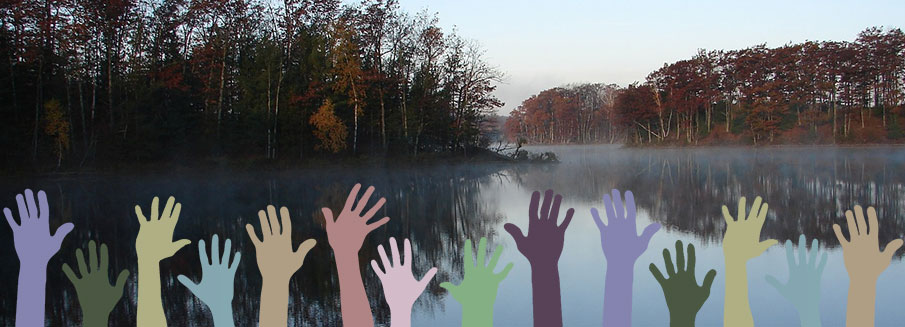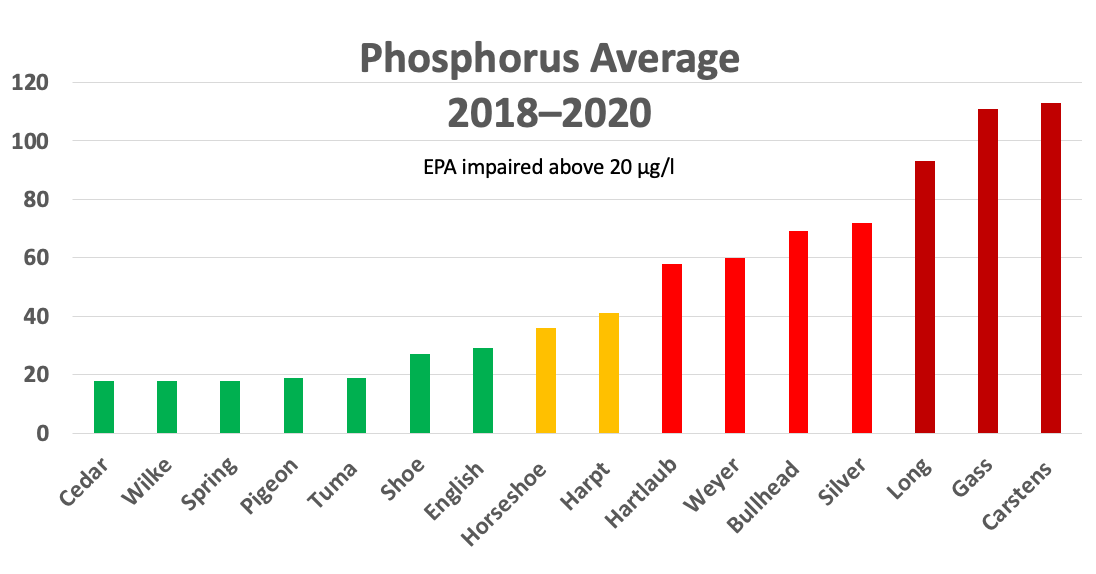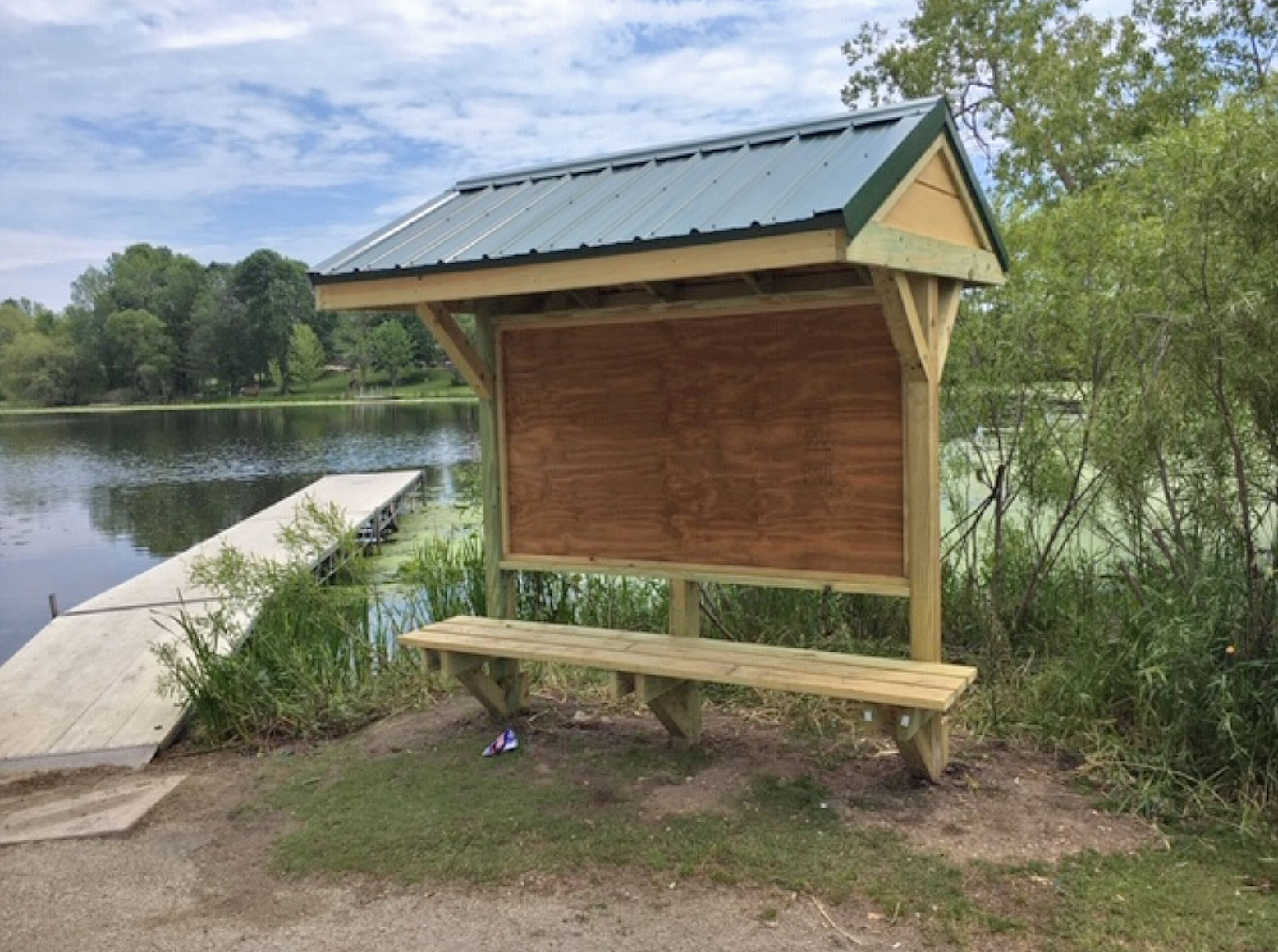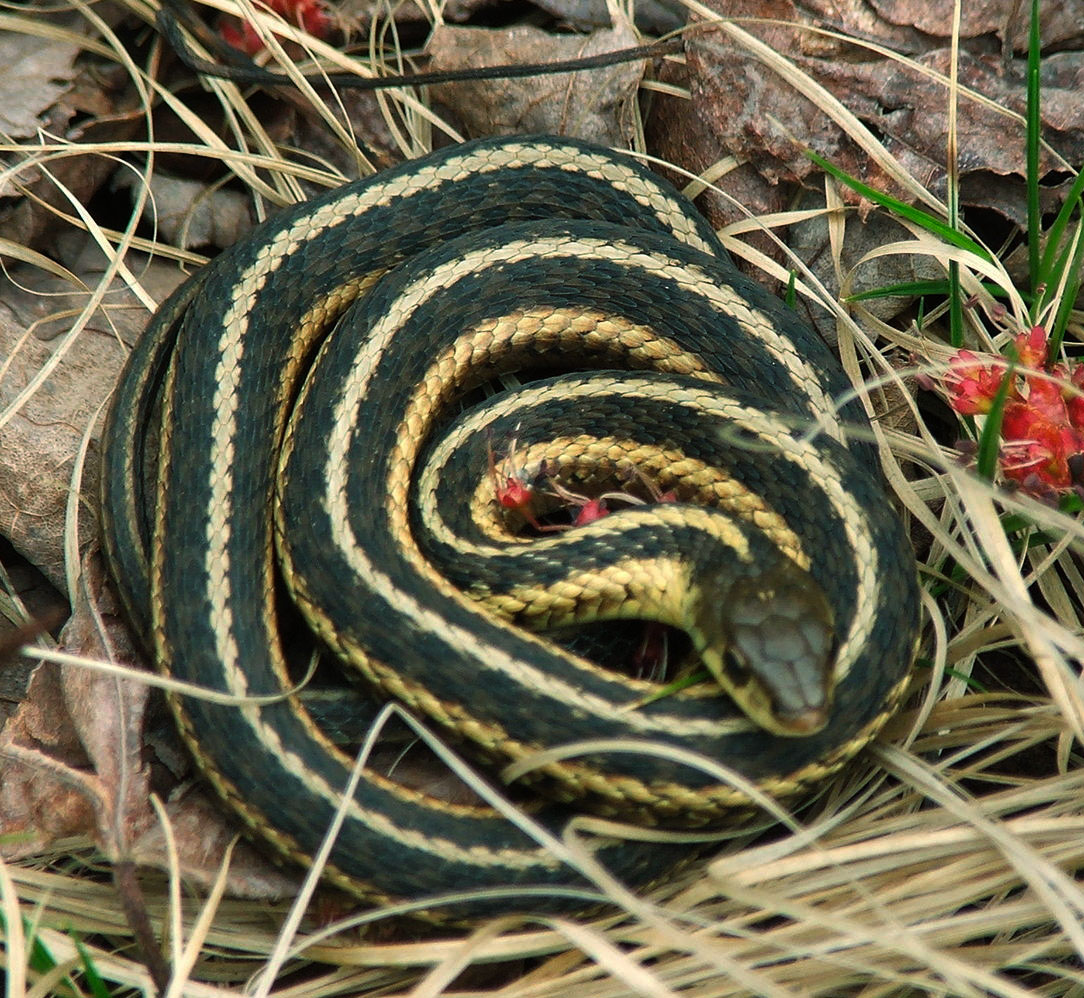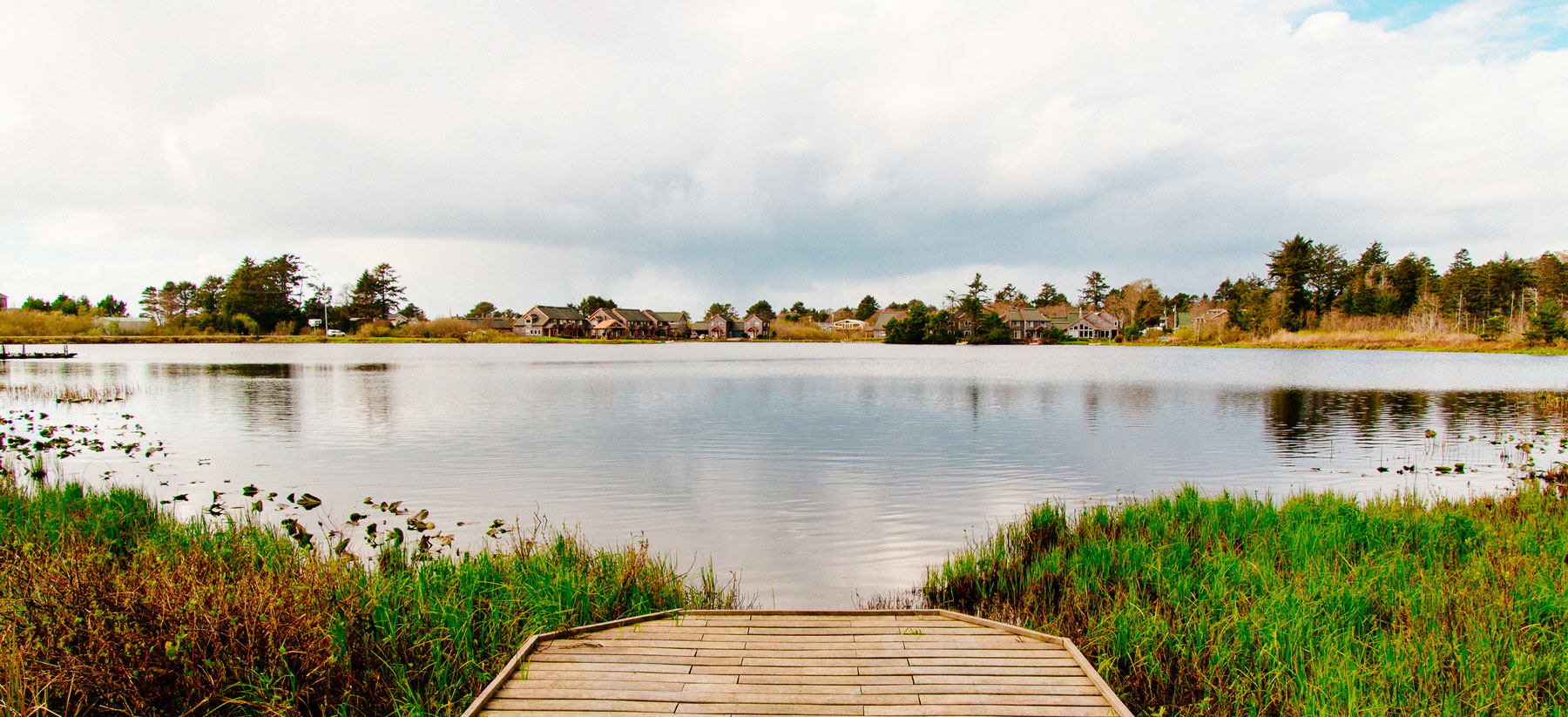by Todd S. Bergmann
Originally published in the Valders Journal on February 1, 2018.
Recent innovations and technology make it easier to catch more fish, an expert fisherman told area sportsmen last week. Tournament fisherman Clint Ward addressed a meeting of the Manitowoc County Lakes Association on Jan. 25, 2018, discussing everything from his favorite ice fishing equipment to how he beat his cousin using the latest technical advances.
Ward said the best lakes in the county for catching: bluegills are Carstens, Weyers, West and Bullhead; for crappie it’s Long, Shoe and English; for perch it’s English; and for northerns it’s Wilke, Hartlaub, Schisel, and Cedar. Additionally, Cedar, Silver, English and Pigeon lakes contain small populations of walleyes, he said.


